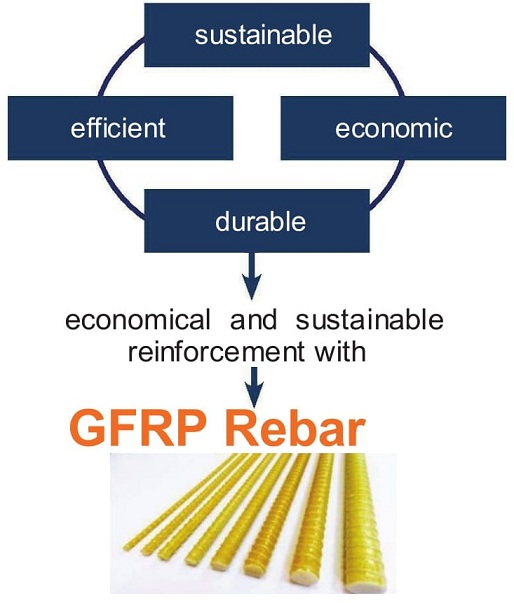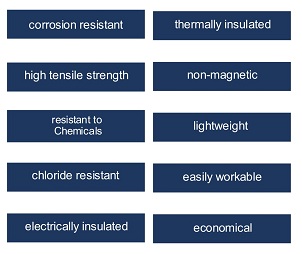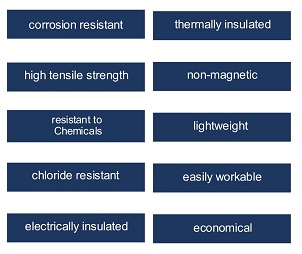What is Glass Fiber Reinforced Bar
As constructional material, steel has been a huge success story ever since the industrial revolution. However, steel also has its disadvantages, such as its low resistance to corrosion and the resulting limited lifetime, which has lead engineers to look for alternative solutions.
Fiber composites are a good alternative which have been successfully used since the 1980's in various industries (e.g. automotive, aircraft ships and construction). One of the most prominent among composites is glass fiber reinforced plastics (GFRP). With its desirable physical properties and major advantages over steel, GFRP is destined to be used in many applications in modern construction industry and remedy a magnitude of previously unsolvable problems. One of its most interesting applications is its use as concrete reinforcement. After extensive development and certified testing






